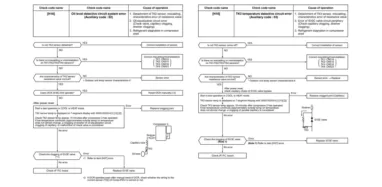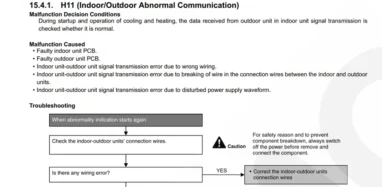Owning an RV lets you go on trips and adventures anywhere and anytime you want. Unfortunately, your RV isn’t spared from problems. If your RV air conditioner won’t turn on, all hope is not lost yet.
The air conditioning system of your RV may show numerous issues such as leaking water, not blowing cold air, making noises, and more. However, there might also be instances when the RV air conditioner may refuse to turn on at times.
A lot of people seem to assume that they need to have the whole unit replaced just because the old one is starting to act dead. But, the good news is that there are a few things that you can do to identify the root cause of the issues and troubleshoot the AC unit of your RV.
Common causes why your RV air conditioner refuses to turn on
Average air conditioning systems are meant to last for 10 to 20 years. But, just like other electronic devices, AC units can show other problems or worse, completely stop functioning.
If the AC of your RV doesn’t work or turn on, there are several steps you need to take to identify what caused the issue.
Faulty thermostat
One of the common reasons why an RV air conditioner may refuse to turn on is because of a faulty thermostat. The easiest way to tell if the thermostat is defective is when the AC unit turns on when the wires touch each other. A multimeter can be used to check the voltage of wall-mounted thermostats.
But, you will need to check the control board of the AC system if the capacitors and thermostat are both functioning. While you can simply replace the thermostat if it is found to be defective, it is more complicated to change the control board of the air conditioning unit and professional expertise may be required for the job.
A faulty contactor or capacitor can also be the reason why the AC unit of your RV clicks but still doesn’t turn on. In case this is the issue, be sure to get the help of an expert who can perform the necessary repair work. Remember that high-voltage power is stored in capacitors and there is the risk of being electrocuted if you try doing the repair on your own. Be sure to get professional help if the capacitor will be replaced.
Dirty components
The buildup of dirt and debris in some components including the condenser, evaporators, and filters is among the primary culprits behind the breakdowns of RV AC systems. Regular cleaning and servicing are one of the easiest and most effective methods to prevent this issue. If there are filters in your AC, you need to change them once they get dirty or based on the suggested schedule stated in the user’s manual.
No power supply
If the AC unit in your AC doesn’t turn on at all, it is important to check if it really gets enough power supply. The very first thing you need to look into would be the 12V panel to determine if the breaker is tripped or the fuse is blown. The thermostat gets power from that same panel as well. When the thermostat doesn’t work as well, you might want to repair or change the power panel.
If it is a tripped-off breaker or a blown fuse, all you have to do is reset the breaker or change the fuse. It might happen if the campsite’s power supply is too weak for powering up your RV’s AC system.
But, this is no longer an issue in most campgrounds today because they use 50A service for the modern AC systems. This can happen in campsites that use the traditional 15A power poles. But, it is important to inspect the breaker since it may trip for other different reasons.
In case the power system works just fine, you might check the rest of the components.
Faulty compressor or motor
The entire system is going to shut down and will not start at all when the motor malfunctions. You will have to check the motor to determine if the problem can still be repaired or if a replacement is already necessary. In the same way, issues with the AC compressor might also cause the entire unit to shut down.
Low refrigerant levels
An RV air conditioning unit will not work if it has low refrigerant levels. Even though the system may turn on, it is not likely that it will function properly. A refill will be easier if the AC system uses R-134A or R410A refrigerant instead of the R-22 types. It is recommended to seek the help of a professional for the refill.
Remember that even the best and most reliable AC systems may still show some issues. However, purchasing from a popular brand with good reviews will give you the assurance that you will be receiving good service and there is also a warranty to cover it in case the system breaks down.
Some of the best air conditioners for RVs belong to brands such as Coleman, Frigidaire, Honeywell, and Dometic. Getting a unit from any of these brands can help you avoid problems such as the RV air conditioner won’t turn on.
How to put freon in rv rooftop air conditioner? We have an in-depth guide for that. Please check it out.
Problems with wiring
The wires running from the power outlet to the AC unit may be yet another reason why the air conditioner of your RV doesn’t turn on. In case this is the problem, you need to get the help of a professional HVAC mechanic who can address it. Dealing with dead or frayed wires can both be dangerous and tricky for newbie DIY enthusiasts.
To replace or to repair your RV air conditioner?
If the RV air conditioner continues to show problems even after you checked the problems above, make sure to get the assistance of a professional HVAC mechanic. If your unit is more than 12 years old, it might not be a good option to just repair it. Even if a repair is possible, be sure to evaluate the costs of repair before you make your final decision. Going for a new one will be a much better choice if the repair cost is over 50% of the price of the unit. Is air conditioner extended warranty worth it?


